
In 21 Letters on Life and Its Challenges, Charles Handy, 87, is talking to his four grandchildren. His goal is to help them as they are “contemplating life’s rich choices.” In a life that he acknowledges has seen technology transform lives in unpredictable ways, he focuses on the question that never changes: what it means to be truly human.
Handy has had a series of different careers, starting out as an executive of the Shell Corporation in Asia. He then taught at MIT and the London Business School and regularly presented “Thought for the Day” on a popular BBC morning radio program. He describes himself as a writer; others might say philosopher and guru.
This edited excerpt from his book looks at what people should want and get out of work, why management is a misleading term, and why the world’s big corporations may not be set up to attract and keep the next generation of talent unless they understand people are not simply a human resource.
Keep it small
In 1973 Ernst Schumacher, a British/Swiss economist, wrote a book called Small Is Beautiful. The title was the inspired suggestion of an editor, although the main thrust of the book was contained in its subtitle: Economics as if People Mattered. I was tempted to steal that subtitle for my own book three years later because that was at the heart of what my message was going to be. I came to realize that if people truly mattered, then it was better that they worked, if at all possible, in situations where everyone could know one another. For how can you trust or rely on someone whom you never meet? Humans need humansized groups to be at their best. Small is better, if not essential, to get the job done properly.
Denne historien er fra Winter 2019-utgaven av strategy+business.
Start din 7-dagers gratis prøveperiode på Magzter GOLD for å få tilgang til tusenvis av utvalgte premiumhistorier og 9000+ magasiner og aviser.
Allerede abonnent ? Logg på
Denne historien er fra Winter 2019-utgaven av strategy+business.
Start din 7-dagers gratis prøveperiode på Magzter GOLD for å få tilgang til tusenvis av utvalgte premiumhistorier og 9000+ magasiner og aviser.
Allerede abonnent? Logg på

Transforming information into insight
Focus on six organizational elements to build a world-class data and insights capability.

THE URGENT NEED FOR SOPHISTICATED LEADERSHIP
The pandemic has highlighted a series of paradoxes inherent to the work of leaders. What comes next will depend on how well leaders face up to them.
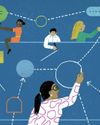
The road to successful change is lined with trade-offs
Rather than trying to convince people your change initiative is the right one, invite them to talk openly about what it might take to implement it: the good, the bad, and the frustrating.
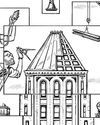
Sustaining productivity virtually
Maintaining productivity levels among remote employees is an enduring challenge. Here are five ways to help businesses and employees thrive while people work at home.
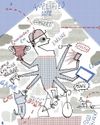
FORWARD TO normal
Entertainment and media companies are building business models that are resilient to the enduring changes in consumer behavior ushered in by COVID-19.
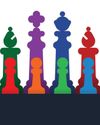
How leaders can promote racial justice in the workplace
Embrace four principles to turn today’s diversity, equity, and inclusion initiatives into sustained progress.

CREATING THE OFFICE OF THE FUTURE
In a remodeled world, it is vital for companies to reinvent ways of working.
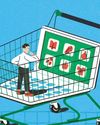
Consumer companies must take leaps, not steps
As shoppers show how quickly they can adapt to external shocks, retailers will need to radically reconfigure their business models.
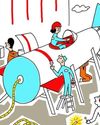
Businesses can fast-track innovation to help during a crisis
“Unrealistic” timelines can actually work. Here’s how.
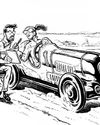
Agility and experience management work better together
Many companies achieve early wins with separate transformational efforts, then stall. But if combined and enhanced using “return on experience,” or ROX, measures, these two programs can unlock each other’s potential.